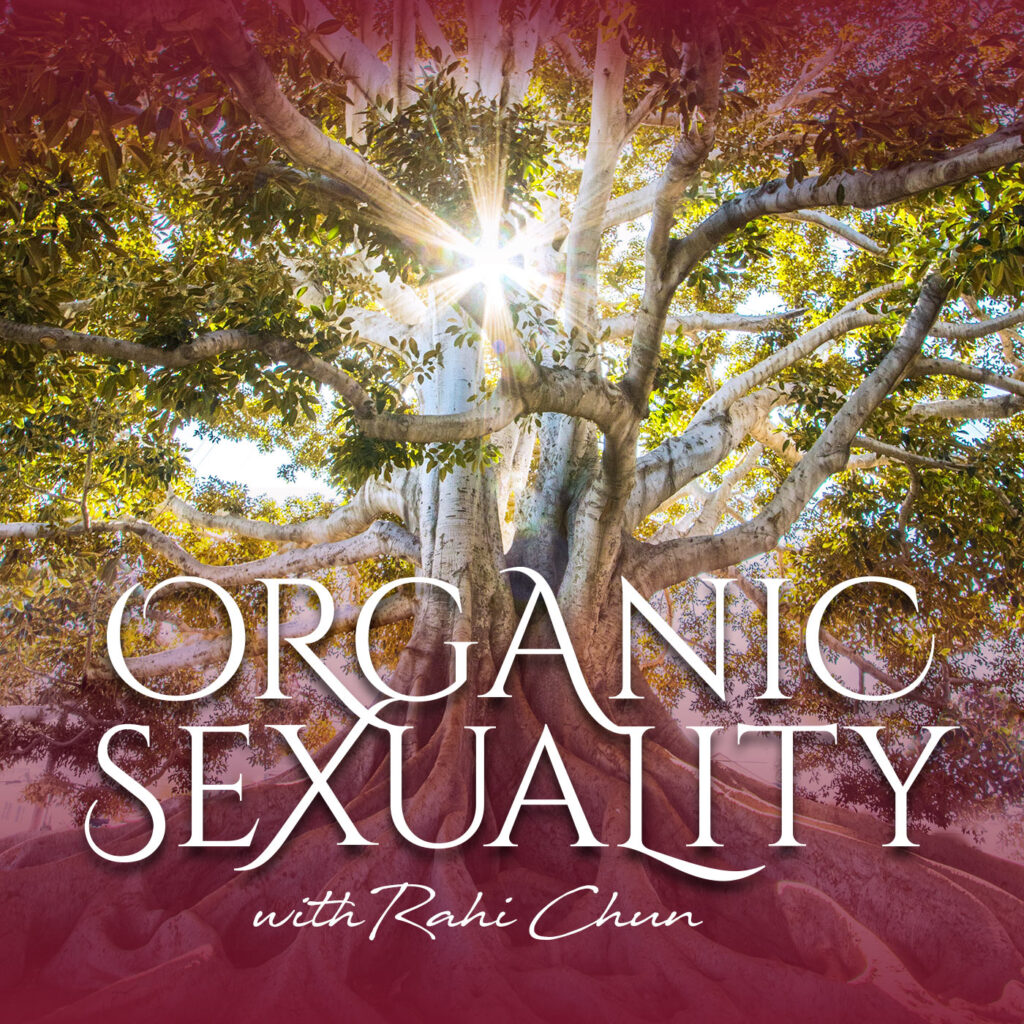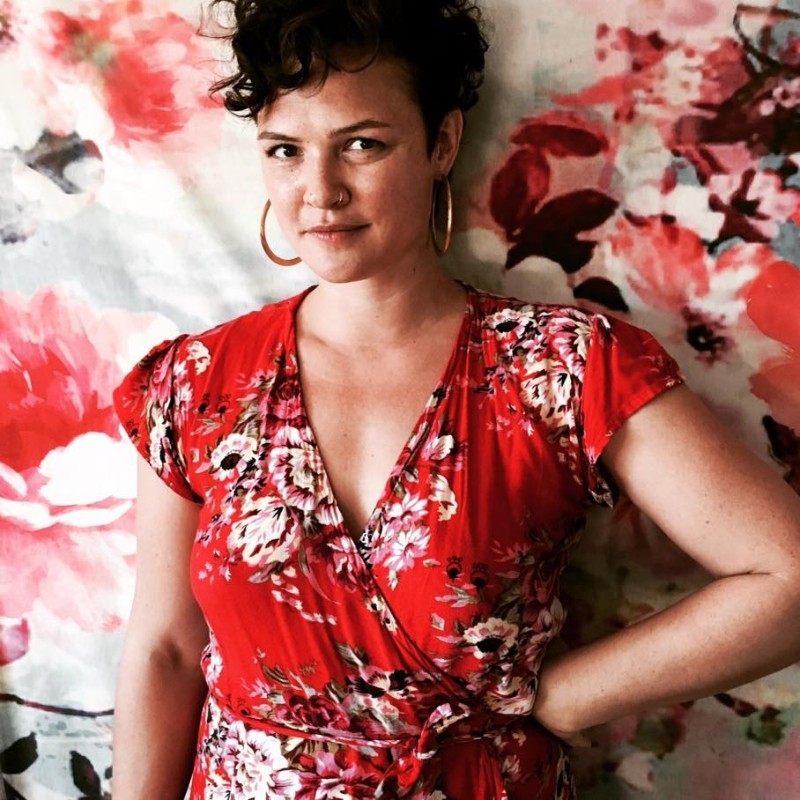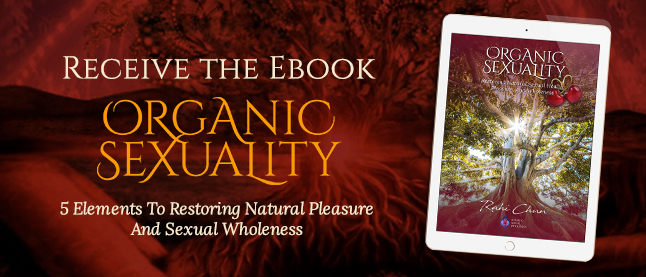
Re-inhabiting Presence, Pleasure and Power for Differently-Abled Bodies with Emily Royce, President of the ACSB
Share this episode:
I’ve known Emily as our fearless leader – President or Co-President of our ACSB for several years now, as well as one of the experts in our field regarding holding space for differently-abled bodies. I’m grateful for her service, both as a sexological bodyworker with particular expertise in serving foix with chronic pain or who are on the outskirts of mainstream sexuality, as well as for her selfless leadership in shaping the evolution of our profession.

Emily’s site: HealWithPleasure.com
Additional Resources:
Books:
“Care Work: Dreaming Disability Justice” by Leah Lakshmi Piepzna-Samarasinha
Emily Royce is a certified Somatic Sex Educator, Sexological Bodyworker, and STREAM (Scar Tissue Remediation) practitioner who is currently President of the Association of Certified Sexological Bodyworkers and has served in this capacity for the past several years.
Emily specializes in working with foix who have chronic pain and disability, or disorders that directly affect their sexuality, helping those on the outskirts of mainstream sexuality discover the pleasures hidden in their bodies, and the language around asking for what they need and want, and receiving it.
“Letting Curiosity Lead” is a major tenet in how she heals with pleasure.
We explore:
How Emily’s decision to explore embodying grieving through dance, after experiences with MS since childhood – and allowing herself to feel it all, was her foray into eroticism and finding the greatest joys she has ever experienced.
How experiencing extended kundalini meditations and immersing herself in the realms of possibility became touch points into sensuality, sexuality, and erotic trance states leading to a body knowing and remembering.
How both kundalini yoga and sexological bodywork are similar in their inquiry : “what does my body need in this moment – moment by moment?”
How the methodology for everyone is the same – whether differently-abled body or not – which involves asking: “how is your body in this moment, how can we invite an intimate connection and attunement with your body’s authentic desire and knowing, and how we can make this feel even better?”
How differently-abled bodies may be used to feeling like a burden or taking up “too much space,” leading to self-apologizing due to the messaging from society of what is “normal,” – leading to feeling like you’re always behind or being too fussy.
How the amount of repeated medicalization can wear on a person and separates them from their body’s intelligence – getting further and further away from one’s innate knowing…. And how working even slower, and untangling any sense of urgency is the medicine….always inviting the process to be client and body-led.
How essential it is for all practitioners to question what “normal” is and consider how society’s conditioning has created what appears acceptable in a society where all bodies are unique and different.
How “healing with pleasure” is everything – the medicine the body needs and wants and how we need to slow down, pause, and feel, to cultivate this resource in the body.
How discovering states of neutrality in a body used to pain, can serve as a resource then leading to openings into pleasure.
Rahi (00:02):
Welcome to Organic Sexuality, where we explore the restoration of pleasure, the reclamation of sexual sovereignty, and the realization of our embodied sexual nature. An invitation to honor the pleasures of your body by embodying the pleasures of your nature. I'm your host, Rahi Chun. I'm a certified somatic sex educator, sexological bodyworker, and creator of somatic sexual Wholeness.
Rahi (00:37):
Today I am thrilled to invite Emily Royce to the podcast. Our exploration of embodiment and the sexual and sensual pleasures for differently abled bodies invites us to question how as a society, we've created these standards and norms about sexuality and embodied pleasure, when everybody is so unique and different. And as practitioners, we explore how the same principles apply for anybody of attuning for what is true and desired moment by moment, always questioning. How can this feel even better. I'm very excited to welcome Emily Royce to the podcast. Um, Emily is also a certified somatic sex educator, a sexological bodyworker, as well as a scar tissue remediation and management practitioner, uh, who is currently, uh, the president of our Association of certified Sexological Bodyworkers. And she has been past president or past co-president for several years now. So there's a number of things that, um, we wanna get into. Um, Emily specializes in working with folks who have chronic pain and or disability or disorders that directly affect their sexuality. Um, she helps those on the outskirts of mainstream sexuality discover the hidden pleasures in their bodies and the language around asking for what they need and want and receiving it. Uh, Emily, thanks so much for joining us today.
Emily (02:24):
So happy to be here. Yeah. Excited to have this conversation.
Rahi (02:27):
Awesome. Me too. Me too. So, I, you know, like oftentimes when I have, um, guests on the podcast, I feel like, like a, a natural jumping off point is, um, inquiring about like how your life experiences shaped or influenced your path to holding space as a sexological body worker with the audience that you do. And what has been really instrumental in your personal jo journey of, of your own sexual embodiment?
Emily (02:58):
Okay. Well, you know, the focal point of my work, um, comes from, I, I developed chronic pain as a child, probably about six if I'm like, trying to track it where it originated. Um, and then just, you know, as, as the stuff does, it just compounds. And, um, but
Emily (04:13):
I think I was resourced enough, felt supported enough by the universe. I'm like, okay, I can do this thing now. And not at all imagining that as I consented to grieving that within that was going to be greater joy than I had ever experienced. I, and I, I think that's true. Once we have this experience of, um, allowing ourselves to feel
Emily (05:22):
And I'm a Kundalini yoga instructor, so it's like really kind of wild meditations for a long time. Mm-Hmm.
Rahi (06:53):
Mm-Hmm.
Emily (07:24):
Gosh, yeah. It, it might, you know, concurrent sounds about right. Mm-Hmm.
Emily (08:25):
You know, you just having this experience that felt like the first touch point into sexuality and sexuality, you know? Mm-Hmm.
Emily (09:31):
This is liberating uhhuh, you know, uhhuh
Rahi (10:32):
Mm-Hmm.
Emily (11:46):
It's like both. Mm-Hmm.
Emily (12:38):
Mm-Hmm.
Emily (13:27):
And that really helps work on, you know, ego. Mm-Hmm.
Emily (14:29):
What if sometimes I'd find my arms being up in this wild pose Mm-Hmm.
Rahi (15:36):
Well, this is really a wonderful segue because I, I, I wanted to ask like, um, how you incorporate what's been really instrumental in your journey with your clients? Um, and it sounds like, you know, I love what you, you know, kind of underscored around like, you know, when you can imagine it,, your neurons are firing, you know, because your imagination is so powerful. And just being present with what is and what your body needs moment to moment, um, are these, are these principles that you bring to your practice with your clients? And, and yeah, I guess a broader question would be like, what, what have, what do you, what do you find yourself bringing into the session space for your clients who may have chronic illnesses or physical disabilities that has been really instrumental for your journey of, of reclaiming your body?
Emily (16:31):
Mm-Hmm.
Rahi (16:47):
With everyone,
Emily (16:48):
Yeah. In a way, you know, 'cause I think we compartmentalize, you know, differently abled bodies, but the technology is not really different. It's how is your, your body in this moment? Let's do some body focusing. Let's get you connected and in a relationship with your body so that you all can be having a conversation. It's less important about me understanding exactly what to do with you. Let's figure out where your system is leading you today. Um, the simple invitation of like, what would make this even better? Mm-Hmm.
Emily (17:49):
Mm-Hmm. At the same time. Mm-Hmm.
Emily (18:49):
Okay. Actually the light is kind of irritating.
Emily (19:56):
That really wears on a person and their body. And it really separates you from your body intelligence. It's by design. Mm-Hmm.
Rahi (21:11):
Emily (21:12):
Presume that they wanna have sexuality that looks like what's going on in the movies. Mm-Hmm. So to really, like, we don't wanna do this with any clients. Again, that's why I'm trying to like generalize pan out. Yeah. Because hopefully we bring the same sensibility of slow Mm-Hmm.
Rahi (22:31):
Well, I mean, what I think what you're speaking to Emily is so, so, so important. I mean, here I was like preparing for our interview, like wondering, you know, like, you know, what awareness as practitioners, you know, should, should consider. But it, it's really, it's really the fundamentals, you know, it's making sure it's client led, client empowered, attuning to the client's body, you know, no matter, you know, how, how, like where the client's body is on the spectrum of, of ability and, um, 'cause that's when the, the body is really reclaiming its own agency. And what I'm hearing is what I mean, the difference that I hear and you know, like, is that because, um, you know, some, some folks who go through the, the, the kind of western medical system have been so disempowered and been told like what procedure, like so many procedures are imposed onto them that it that to just really attune to, you know, even more so what it is that is true for the client's body and, and let that lead.
Emily (23:39):
Yeah, exactly. There has to, I mean, the wheel of consent is a beautiful tool for, again, for everybody. And this hopefully is a part of all of our practice. This can be really instrumental, um, and empowering for people who've, you know, been so out of consent. Yes. A lot of things have been done to them. Mm-Hmm.
Rahi (23:59):
Emily (24:00):
And even, you know, I think it's really important, like if we probably see, I see some big improvements when people see me for session prior to a surgery and after, particularly prior Mm-Hmm.
Emily (24:57):
I'm taking too long. It's good enough. I think I get it without like, no, we're really gonna stay here. Like, what would you want me to do to your, how do you want me to touch your arm? Like, if we're just practicing, I was like, I don't know. Okay. Well, we'll just stay with you. I don't know until mm-Hmm.
Rahi (26:10):
Mm-Hmm.
Emily (27:15):
Mm-Hmm.
Rahi (27:22):
Emily (27:23):
It, it really is everything. Mm-Hmm.
Rahi (27:24):
Um, it is the medicine.
Emily (27:26):
It
Emily (28:28):
Pleasure. And it, it exacerbated it when other people were saying, get into your pelvis, this juicy, enjoyable, you know, I'm like, it's not, it's very Right. Painful and loud and hot and fiery. You know, like Mm-Hmm.
Emily (29:34):
And I think a lot of us have chronic pain. So when I say that, I think a lot of folks are hesitant to claim that for themselves. Mm-Hmm. I often hear people be like, oh, I don't have like a disability. It's just like, my knee hurts all the time. It's like, well, I mean, that's technically disabling. You don't have to use the term
Emily (30:31):
We gotta be regulated to really be able to feel pleasure at its, you know, totally full potential. Like, otherwise we can't even take it in. It's just gonna like, yeah. Which is what I think a lot of the sexuality world, unfortunately, it's like more faster, harder throw just like throwing things, um, at ourselves to, to feel more Yeah. When the curiosity in me is, can we feel more with less? Like Yeah. Can we start with neutral
Emily (31:34):
Or
Rahi (32:46):
Not that No, it's great. It's great. No, you know, like what I'm, what I'm distilling from what you're sharing and, and actually the thing that really, uh, strikes me, uh, is, you know, this, this, this, there's this thing, and it's a, it's a cultural normative idea of what sex and pleasure and, and intimacy is supposed to look like. And it really gets in the way of the client led the body led experience and exploration of what's authentic for the body in the moment, moment by moment. And that's kind of like what I'm taking away, because like, I mean, I think it's so fascinating that, you know, in your own journey, you shared how, you know, you went from pain and getting to, you found the pleasure in the neutral, which is, which I love. It's so fascinating. And, and then from there you could like, you know, inquire further, you know, into neutrality and into pleasure.
Rahi (33:41):
Um, and what I'm hearing is, you know, like, I think this applies to anyone. I mean, I have so many clients who come in and they say, I think my is broken. And it's just based on all these Cosmo articles or what's in the media, you know, they think they should be, you know, having these squirting orgasms or, or whatever their idea is. But it sounds to me like a lot of what you, the space that you hold is to have an authentic inquiry for the client to really discover what is honest and truthful in their body moment to moment, rather than letting like these external ideas get in the way.
Emily (34:20):
Yeah. Yeah. I mean, those external ideas don't seem fun for anyone. Like, I don't even think the people who technically meet those criteria, whatever that is, you probably don't even feel like we're all, I mean, those, those things are designed to make us feel less than Exactly. That's what all designed for, you know. Sure. Buy another thing, get surgery. Yes. Get like this, do this uhhuh
Emily (35:32):
I I just need to, it's, it's geared towards, towards if I can just fix myself, or sometimes if I can fix a partner or something else, then everything will be okay. And it, it all comes back to somatic practices of like, Mm-Hmm.
Rahi (35:49):
Mm-Hmm.
Emily (35:49):
Emily (36:46):
Mm. And that sent, you know, full body orgasm. And then I was like, I wonder if my elbow, and then I just started experimenting Mm-Hmm.
Rahi (37:34):
For everybody. Yeah. A lot more accessible. Sure. You can do it in public, you can do it at a restaurant. Exactly. Absolutely. Exactly. Yeah. Um, yeah. So
Emily (37:43):
I want that for clients, this kind of magical, but very science-based neuroplastic, you know, it's like, yes, they study the states of Right. Like, um, like psychedelics and that erotic trance is similar Yes. To these states where we bend reality and, and we bend what's possible. Right. And I see it as as fact as truth again. Mm-Hmm.
Rahi (38:36):
Absolutely. I, I fully, I fully believe that. And, you know, going back to your point about psychedelic journeys and erotic trances, there's so much similarity. I feel like both the medicine world and our own kind of erotic medicine world, uh, kind of opens up portals for, um, touching into past traumas and deep wounds and metabolizing them in a really profound way. I feel like erotic energy, you know, like, I feel like sex the way, you know, most mainstream, you know, culture sees it is just kind of missing the point almost. Mm-Hmm. I mean, pleasure is wonderful. I love pleasure, but to your point, a lot of it's about ego and identity and feeling like, you know, you are accomplished as a sexual person. And when you really go into erotic states, you know, I, I think you can touch into realms of consciousness that, that, that aren't accessible otherwise. Okay. Before we wrap, as I have you now as the sitting president co-president of the Association of Certified Sexological Body Workers, um, and you've been either serving as president or co-president, uh, or I remember a couple years ago as secretary Mm-Hmm.
Emily (40:05):
Hmm. I wanted, yeah. I just felt the call. You know, I, I, I think, um, you know, I felt the call from spirit and I answered, it's like, well, this is what I was told to do, so I'm gonna show up and kind of do it dutifully. Um, but I, I, I wanted to be a part of, uh, shaping change, um,
Rahi (40:42):
Wow. Um,
Emily (40:43):
So feeling like, yeah, I don't know all the things, but I wanna be part of shaping where we're going. Um, and yeah, it's like that's where, uh, the Bipoc scholarship got created, which is just Mm-Hmm.
Rahi (41:26):
Oh, cool. Uhhuh
Emily (41:27):
Wonderful. I meant for both practitioners who might have to be outta work based on disability or injury to something you need in your office to try to make it more accessible for your clients to additional training you wanna do, so that you're more equipped, um, Mm-Hmm.
Emily (42:27):
'cause there's still not very many of us. Not, but the majority, no, they're not, the majority are majority white folks. Um, and so it, it, as much as I've tried to get the schools unified around commonality of mission and purpose mm-Hmm.
Emily (43:27):
Huh? I wonder what this is, or this is, I wonder if I talk to another school ahead, how we might like do something that's difficult for us, but do it together. You know, like it's just, it feels like, and I hear the beginnings of that, you know, with Mm-Hmm.
Emily (44:20):
Mm-Hmm.
Rahi (45:57):
Emily (45:58):
Or totally if it wants to be in this like, next frontier of Right. Really providing healing presence to a multitude of bodies in a trauma-informed way. Mm-Hmm.
Rahi (46:30):
Yeah. And the opportunity, you know, I mean, just in our conversation, you, you've, you've underscored so many like, incredible insights that are applicable to, to any client that it, it's almost like, you know, like the, the, the, the, the meditation of being slow and moving at, at a slower pace than what we're used to can bring such insights and a tremendous like, skillset to any practitioner who's not used to that by working with, you know, folks who are disabled. Um, I mean, everything that you mentioned, you know, like, um, you know, just exploring the whole terrain of the body as a healing potential and the new neural pathways. I mean, these are all applicable to any client, but I think it's almost like, you know, if we can open up as a field to be more inclusive, um, then it, it's just gonna enrich all of us as practitioners and enrich, you know, our society just in general, you know, to be a liberated, you know, like group of, group of souls.
Rahi (47:35):
Um, so for listeners who are not sexological body workers, there are currently, I believe, seven trainings all around the world. Um, Portugal, uk, Australia, uh, Berlin, uh, obviously North America. And each has its own identity. And, and Emily speaking to the desire to really work as a community so that we can bring, you know, the potential, kind of realize the potential of, um, sexual empowerment and embodiment to all bodies. Emily, thank you so much for being with us today. I really, really appreciate everything that you shared, and I am excited for our audiences to, to, um, yeah. To learn from our discussion today.
Emily (48:18):
Yay.
Rahi (48:21):
And Emily, um, for people who wanna reach out to you and learn more about your work and your offerings, can you share how people can get in touch with you?
Emily (48:30):
Yeah, it's, uh, heal with pleasure.com, and when you go there, you can sign up for like an intro meditation too, that I'll just send it to you automatically and then you can get a taste of the work as well. Hmm. Um, and that puts you on the mailing list, which I am not going to bombard you, but then if some kind of new offering comes up, you'll, you'll get be in the know. Um, and then I'm on Instagram at Pleasurable Healing. I work both virtually, um, and in person. So I am in Michigan, but I work with people. I have clients all around the world.
Rahi (49:09):
Awesome. Awesome. How lucky for them. Awesome. Emily, thanks so much.
Emily (49:14):
Thank you.
Rahi (49:20):
How is this episode landing for you in your body right now? If your body is familiar with chronic pain states, have you ever considered consenting to feeling and dancing its grief or deeply meditating on states of neutrality? If we liberate ourselves from society's norms of what pleasure looks and feels like, what are novel ways your body may be enticed to explore itself? Have you ever explored the orgasmic, delicious states of your elbow or your knee, or perhaps your ear lobe, either in private or at your favorite restaurant? Links to Emily's website, heal with pleasure.com, and a wide range of resources for differently abled bodies are in the show notes. Until next time, take good care.
Get Podcast Updates
Enter your name and email address below to receive insights behind each Organic Sexuality Podcast episode and the ebook Organic Sexuality, 5 Elements to Restoring Natural Pleasure And Sexual Wholeness
Featured Episodes
With some of the wisest Somatic Sexologists in the Field.
Dr. Aline LaPierre
Susanne Roursgaard
Devi Ward Erickson

Dr. Liam Snowdon
Kimberly Ann Johnson
Dr. Ellen Heed
Keli Garza
Kris Gonzalez, L.Ac.
"Coocky" Tassanee Boonsom
Dr. Betty Martin
About the Show
We explore the restoration of pleasure, the reclamation of sexual sovereignty, and the realization of our organic sexual wholeness. We engage with leading somatic therapists, sexologists & sexological bodyworkers, and holistic practitioners worldwide who provide practical wisdom from hands-on experiences of working with clients and their embodied sexuality. We invite a deep listening to the organic nature of the body, its sexual essence, and the bounty of wisdom embodied in its life force.

Rahi Chun
Creator: Somatic Sexual Wholeness
Rahi is fascinated by the intersection of sexuality, psychology, spirituality and their authentic embodiment. Based in Los Angeles, he is an avid traveler and loves exploring cultures, practices of embodiment, and healing modalities around the world.










